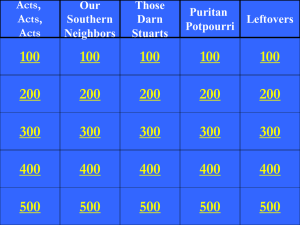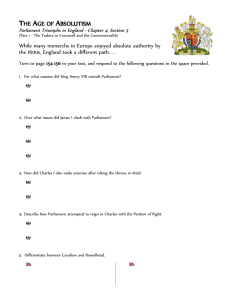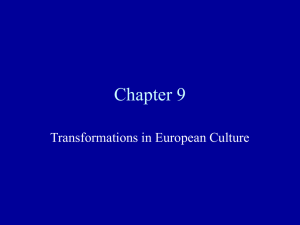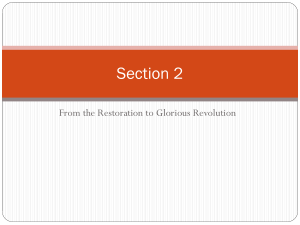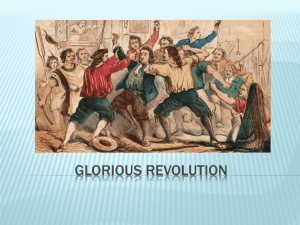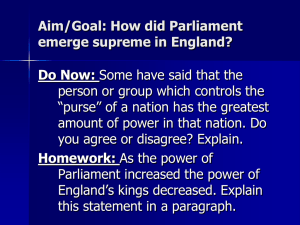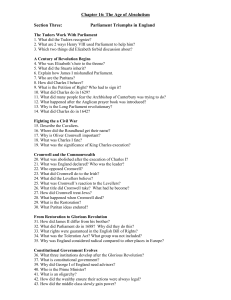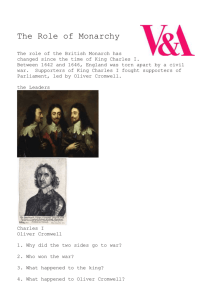The English Revolution
advertisement
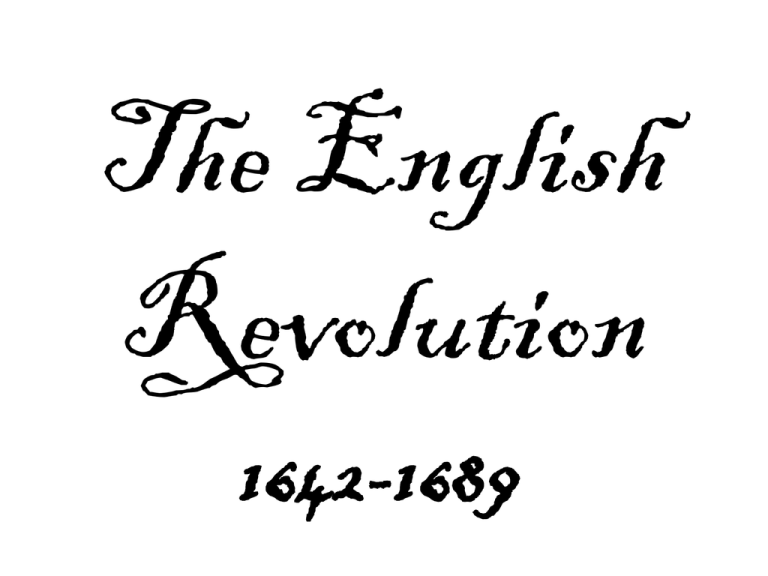
The English Revolution 1642-1689 CAUSE I believe in the divine right of kings and the power of the Anglican Church Vs. England had a Parliament (which is more democratic than a monarch) since King John was forced to sign the Magna Carta in 1215. Parliament James IQueen Elizabeth I’s cousin Puritans I too believe in the Divine Rights of Kings. I can pass whatever taxes I choose. In addition, I believe the Anglican Church needs more ritual. I’m beginning to think my father’s tense relationship with Parliament is going to make my reign a little tricky Charles ISon of James I 1642The Civil War Begins… CavaliersThe King’s supporters vs. The RoundheadsThe supporters of Parliament. Led by Oliver Cromwell The Parliament, led by Oliver Cromwell and his Model Army, are victorious • • • • Charles I is executed. Parliament is abolished. Cromwell’s enemies are killed. A military dictatorship is set up. England is ruled by a military dictatorship until Cromwell’s death in 1658. The Restoration Both the Monarchy and Parliament are restored after the death of Oliver Cromwell. Charles II ( the son of Charles I) becomes King of England Charles II was sympathetic to Catholics, and his brother, James II was a Catholic. Parliament was suspicious of James, therefore introduced the Exclusion Bill, which would have excluded James from the throne, based on his Catholic beliefs. Charles dismissed Parliament due to Exclusion Bill. When Charles dies, his brother James II becomes King. James II was Catholic Parliament did not want a Catholic Monarchy. They decided to invite William of Orange, the husband of James II’s daughter, Mary, to invade England. The Glorious Revolution William and Mary raised an army and “invaded” England. James, his wife, and son fled to France. This bloodless takeover became known as the Glorious Revolution. William and Mary are offered the throne by Parliament. They accept it, but must first sign the English Bill of Rights and the Toleration Act of 1689. The English Revolution is over. The monarchy is restored, but with limits on its power.
